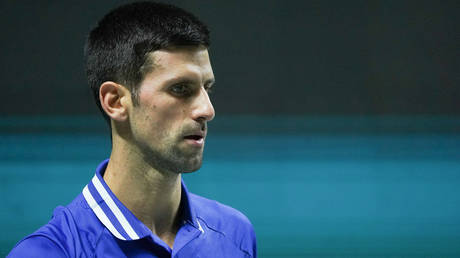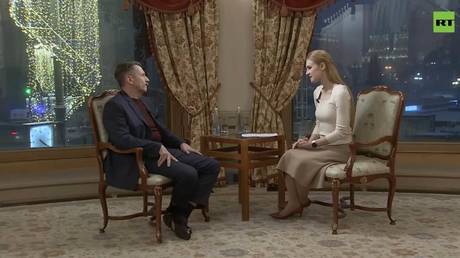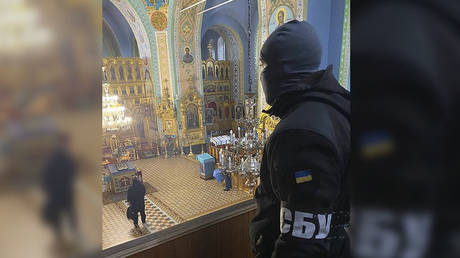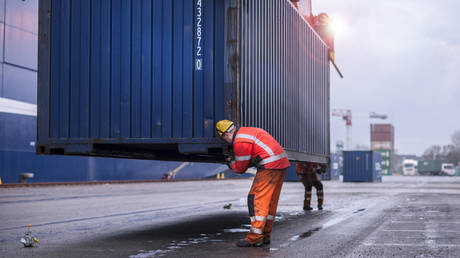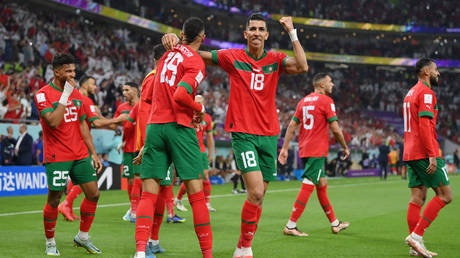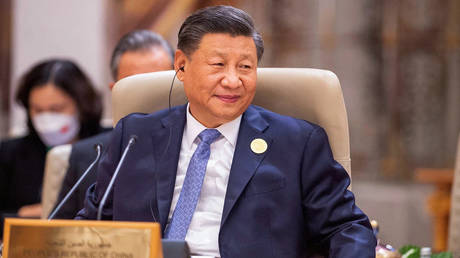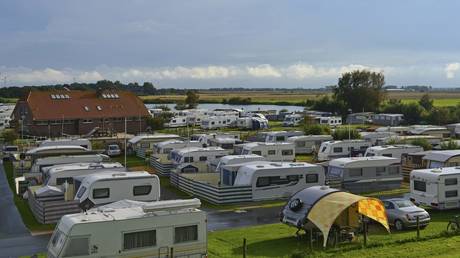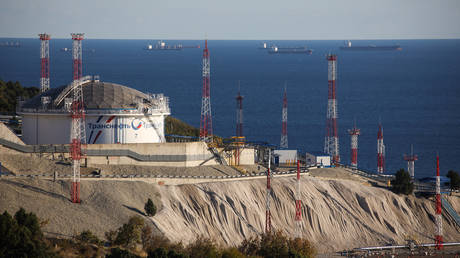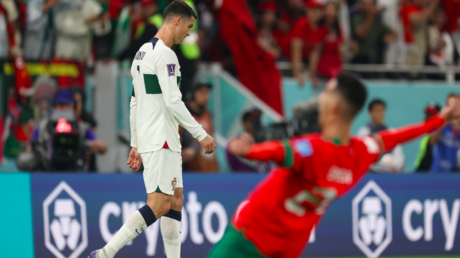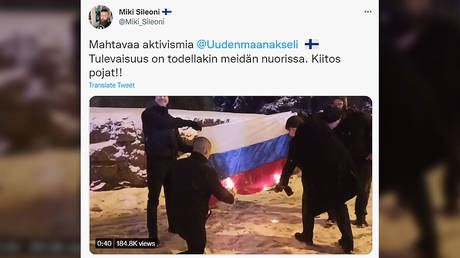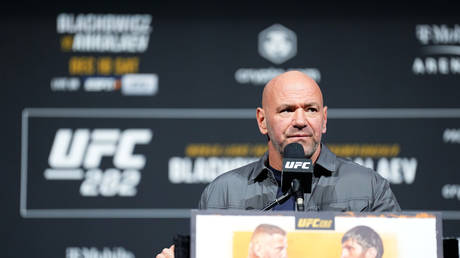World number one Novak Djokovic has been denied entry into Australia – but how exactly did it come to this?
Novak Djokovic has been central to the first sporting scandal of 2022 as the Serbian ace faces being barred from entering Australia ahead of what could have been a record-breaking appearance at the Grand Slam in Melbourne.
The row has triggered a diplomatic spat between Serbia and Australia as well as an avalanche of reaction across the media.
Here, we look at the key questions and the state of play surrounding the Serbian tennis icon.
Why did Novak Djokovic travel to Australia?
Djokovic was seeking what would have been a remarkable 10th Australian Open title as well as a record-breaking 21st Grand Slam title – an achievement unmatched in the history of the sport.
His situation was complicated, however, by Australia’s tight immigration laws which have been put in place in a bid to mitigate transmission of Covid-19.
Djokovic has not explicitly disclosed his vaccination status, which led to several weeks of speculation as to whether the world’s top player would be permitted to travel to Australia.
He pulled out of the Serbian team for the ATP Cup in Sydney this month, stoking talk that he was set to withdraw from the Grand Slam event due to begin later in January – but then revealed in a Tuesday social media post that he had been granted a medical exemption by Tennis Australia to play in the event, and that he was traveling to the country after applying for a visa.
Why wasn’t he allowed into Australia?
After landing in Melbourne following a 15-hour flight from Dubai, Djokovic was detained by the Australian Border Force where he was kept under guard for several hours and isolated from members of his entourage. He was informed that the terms of his medical exemption to compete in the Australian Open did not satisfy the requirements of the country's border officials. This is despite meeting the requirements of both Tennis Australian and local officials in Victoria state.
A statement issued by the Australian Border Force confirmed that Djokovic “failed to provide appropriate evidence ” to support his request to enter the country.
“The ABF can confirm that Mr Djokovic failed to provide appropriate evidence to meet the entry requirements to Australia, and his visa has been subsequently cancelled ,” they said.
“Non-citizens who do not hold a valid visa on entry or who have had their visa canceled will be detained and removed from Australia .”
What have government officials said?
Australian Prime Minister Scott Morrison previously argued that Djokovic's case was one for officials in Victoria state to wade through but, perhaps after noting the wide consensus of public opinion being opposed to Djokovic's entry and accusations that the rich and powerful were subject to a different set of rules than everybody else, Morrison weighed in again.
“Mr Djokovic’s visa has been canceled ,” he wrote on Twitter. “Rules are rules, especially when it comes to our borders. No one is above these rules. Our strong border policies have been critical to Australia having one of the lowest death rates in the world from Covid, we are continuing to be vigilant .”
This statement came after Morrison had previously decreed that Djokovic would be “on the first plane home ” unless he could satisfy officials as to the veracity of his medical exemption from being vaccinated, as well as affirming that it was the responsibility of the traveler to ensure that all of necessary applications were in order prior to entry.
The argument seemingly centers on the issue of whether of a Covid infection in the past six months is a valid reason for an exemption to enter the country. It has emerged that Australian government health officials warned Tennis Australia back in November that would not be the case. In Djokovic’s instance, the federal government has clearly overruled Victoria state and the tennis authorities.
Is the situation political?
Perhaps not initially but it certainly is now. Morrison’s apparent haste in addressing the issue largely reflects the wider will of his constituents and can be seen in a certain light as political grandstanding, as well as a desire to be viewed as strict on border controls in a country which has endured one of the world’s harshest lockdowns throughout the Covid-19 pandemic.
The situation has also tipped over from being a domestic dispute to an international incident after Serbian leader Aleksandar Vucic condemned Australia's treatment of their most famous sporting export.
“I told our Novak that the whole of Serbia is with him and that our bodies are doing everything to see that the harassment of the world’s best tennis player is brought to an end immediately,” Vucic wrote on Instagram.
Morrison, though, stood firm. “Australia has sovereign borders and clear rules that are non-discriminatory as so many countries do… it has to do with the fair and reasonable application of Australia’s border protection laws… all I can say is that the evidence medical exemption that was provided was found to be insufficient ,” he said in response.
There have been suggestions that Djokovic's reputation of being opposed to vaccinations has played a part in the furor, particularly amid reports that two other players with similar exemption requests to him had successfully entered the country .
Furthermore, former tournament director Paul McNamee said to ABC TV that Djokovic “deserves his day on court, not in court, in my opinion .”
He added on Twitter: “For those asking, all players go through the same visa process overseen by Tennis Australia to play the Australian Open (as non Australians are currently not able to enter). So it beggars belief that Djokovic is the only player that has had his visa granted and then rescinded. ”
Where is Djokovic now?
Djokovic will certainly have some time to reflect on the furor, given that he has been placed in an isolation hotel (known as an Alternative Place of Detention by the Australian government) five miles away from Melbourne Park for a period of 72 hours. His belongings remain in storage at the local airport.
The hotel in question has been the source of numerous complaints from detainees in recent months, with accusations of 'maggot-infested food' and bugs being commonplace in its rooms. It has also been blamed for outbreaks of Covid-19 as well as having reports of fires recently.
The Serbian ace has reportedly asked to move to a nearby apartment due to what he claims are hazardous conditions. It is also understood that the windows to his hotel room are sealed shut and that air is circulated by an internal air conditioning system.
Around 32 other detainees or asylum seekers are thought to be staying at the hotel currently, where only employees are allowed come and go. In October, nearly half of the detainees were found to be positive for the Delta strain of Covid-19.
Last February before his win at the Australian Open, Djokovic completed a period of quarantine at a luxury hotel in Adelaide.
What will the outcome be?
This is where we enter the realm of speculation. Djokovic will remain in the country until at least Monday when a hearing will be held to determine if the ban on him entering Australia should be overturned after an agreement was struck between Djokovic's representatives and the Minister for Immigration not to deport him until then. The hearing will take place around a week before Djokovic’s defense of his Australian Open title is due to begin.
But one thing remains certain: even if Djokovic’s legal team are able to sway the legal proceedings in the Serb’s favor, don’t expect the country’s tennis fans to be quite so accommodating inside Melbourne Park.
